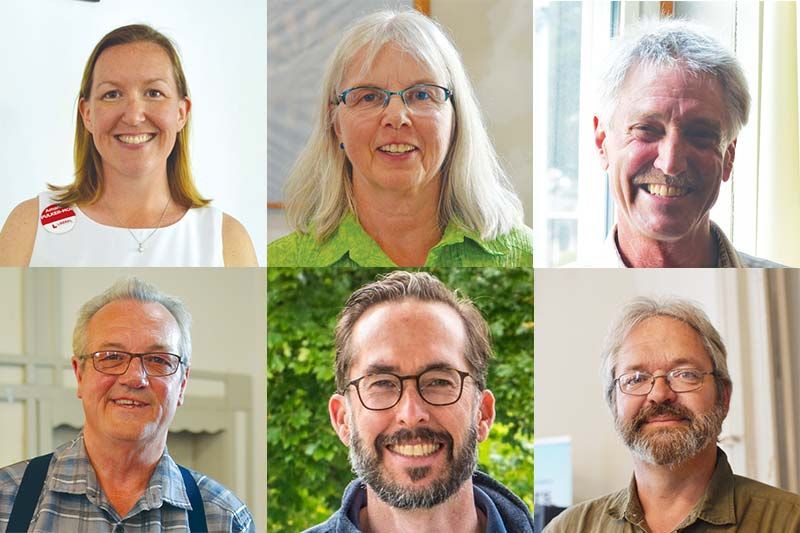May 30, 2018
The upcoming provincial election is one week away and after taking an early lead, the PC party is now running neck and neck with the NDP, while the Liberal Party has slipped to a distant 3rd place standing at a historic low of 20%. In the previous provincial election (2014), MPP Randy Hillier (PC) polled 43% of the vote in the former Lanark, Frontenac Lennox and Addington riding. It is unclear what impact removing Lennox and Addington from the riding and adding households in rural Kingston and Mississippi Mills will have on this race. There are six candidates in the new provincial riding of Lanark-Frontenac-Kingston: Steve Gebhardt (Libertarian), Ramsey Hart (NDP) Randy Hillier (PC), John McEwen (Independent), Anita Payne (Green), and Amanda Pulker-Mok (Liberal) The following profiles were prepared by Jeff Green, based on interviews this week and over the past few months, statements made by the candidates in public meetings, and official party bios. For information about how to vote in the election, the best palce to go is to the Elections Ontario website. Click on voting, then on Electoral District Maps and Information. That will bring up a screen with a bar asking for a postal code. Once the postal code is entered, every road corresponding to the code comes up, and once the road where you live is entered your polling station will come up. We would like to thank all the candidates for attending our all candidates meeting in Sydenham and for given their time for interviews this week. The profiles are below, in reverse alphabetical order based on last names.
Quick Links:
- Amanda Pulker-Mok (Liberal)
- Anita Payne (Green)
- John McEwen (Independent)
- Randy Hillier (PC)
- Ramsey Hart (NDP)
- Steve Gebhardt (Libertarian)
Amanda Pulker-Mok (Liberal)
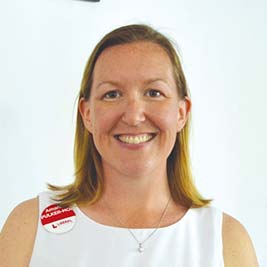
Amanda Pulker-Mok joined the Mississippi Mills Township Council last year, after answering a call from the township for candidates. She was one of 11 candidates and was selected by Council. She is taking a leave from municipal council to be the Liberal candidate in this election. The fact she is a woman with young children at home gives her a different perspective than any of the other candidates in Lanark Frontenac Kingston. Her support for the full day kindergarten program that the long serving Liberal government brought in several years ago, stems from the fact that she has a 4 year old who has thrived in the program. Similarly, her take on the daycare issue is rooted in how her own family makes use of the system.
During the campaign she has spent a lot of time going door to door, and contrary to what people are saying about how unpopular the Liberal brand is in this election, she has found a receptive and interested audience.
"I thoroughly enjoy knocking on doors, it leads to some very interesting conversations. While I have found that a lot of people are still undecided, I find that they are very open to discussing the issues that are important to them and I have learned a lot. The experience has reinforced why I wanted to get into politics, which is to make life better for people," she said.
The jump from municipal politics to provincial politics has been an eye opener for her, especially the party politics aspect, but "for me, it still touches on services that affect peoples lives. It is different when you are talking about major initiatives like healthcare and education which have a direct impact on everyone in Ontario, but I take it on the same way, by listening to people and pledging to work for them."
As a young municipal council member she has been learning quickly about the long lasting impact of the download of costs from the province to the municipalities that took place almost 20 years ago under the Mike Harris government, and she brings some of that municipal perspective to provincial politics.
"Some of the highways and bridges that were downloaded never should have been downloaded, and while the Liberal government has done a lot to improve things and give municipalities more breathing room, we are still living with that reality" she said.
The most prevalent issue on people's minds during this campaign has been healthcare.
"People are really concerned about the kind of service they and their elderly loved ones are receiving and will be receiving in the future, and the specific concerns vary in different parts of this large riding. I talk to them about the Liberal platform and the priorities that it places on dealing with wait times, with primary care, whatever is the most pressing issue for them and their communities."
One thing that has also come up, Pulker-Mok said, was hydro rates, an issue that has dogged the Liberal government in rural Ontario.
"It is a very emotional issue for people to be sure," she said.
Ultimately, although she is aware of the polls which have been difficult for Liberal party members to read, she remains optimistic, both about the riding and the province as a whole.
"I remind people to look at the local representation and the direction they see for the future of the riding, and tell them what my personal experience is. I'm also hearing from PC supporters who are concerned about what a Doug Ford government would look like. I have also been hearing from a lot of people who are going to vote strategically for the NDP or the Liberals depending on the polls."
Anita Payne (Green)
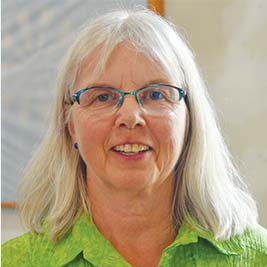
Anita Payne doesn't just put on her trademark green clothes when an election writ is dropped, in order to spend a few weeks getting the message out about the Green Party and climate change issues. Her activism is a day in day out, year round kind of thing.
The day after the election, she is off to Washington with a group of activists to meet with the bipartisan congressional caucus working on climate change issues.
"Even with Trump in the White House there are still people working on these issues in congress and with the mid-term elections coming there may be a further opening. There are 70 or 72 members of the caucus and they come in by twos, there needs to be a Republican for every Democrat," she said.
This is her 5th campaign for the Green Party. She was the candidate in Perth-Wellington in the 2007 provincial election, in Haliburton-Kawartha Lakes-Brock in 2011, in Prince Edward-Hastings in 2014, and in the inaugural federal election in Lanark-Frontenac-Kingston in 2015. Her party activism stems from attending a Green Party meeting, almost by chance, in Stratford in 2006, and she has been involved with the party ever since.
"The Green Party understands the implications of climate change, which is at the core of my politics. It is also a grass roots party. The leader of our party doesn't make decisions about policy on the fly, during an election campaign. We set the policy as a party. I don't know why the other parties don't do that."
Payne also thinks that the carbon tax policies that the Liberal and NDP party have adopted and the one that had been adopted by the PC's under Patrick Brown but has since been jettisoned under new leader Doug Ford are at least a step in the right direction, but says that the Green Party carbon fee and dividend system is a much better plan.
It calls for a fee of $10 per ton of carbon pollution to be charged at source for all carbon emitting products. This would raise the price of gasoline, for example, by 2.4 cents per litre.
The money that is collected in fees would go directly to Ontario residents in the form of a taxable benefit.
"The residents can use the money to invest in technology to lower their own carbon footprint," said Payne, also pointing out that since it is paid out equally to all residents it will mean that "the lowest income people, who maybe don't own a car and live in a small house or apartment, will get a benefit, while higher income people with maybe two cars and a cottage, will end up paying more in higher carbon costs than they receive in rebate."
That would create an incentive for them top invest in green technology, she added.
The other issue where the Greens differ from all the other parties is on nuclear energy production. The Greens would close the Pickering plant this summer and would not re-invest in the Bruce Generating station.
"Instead, we would purchase inexpensive water power from Quebec until the Ontario renewable energy generation is able to take up all of our power needs," she said.
While she is not certain, Payne is thinking this will be her last campaign.
"I am getting tired more easily now, maybe because the heat has been getting to me. I think it is time for some younger candidates for our party. But I will remain involved with the party," she said.
She will also be looking very carefully at the polls on election night, particularly those from Guelph, where she hopes Green Party leader David Mike Schreiner will win the first ever Ontario seat for the Greens, and from Parry Sound, where the Green Party candidate Mike Richter has an outside chance of being elected.
"Imagine having two Greens in the Ontario legislature. I'm really hopeful."
John McEwen (Independant)
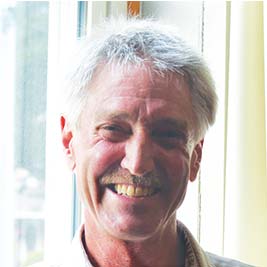
When introducing himself to the audience at all candidates meetings, John McEewen is up front about his intentions.
"I am a single issue candidate," he says "I'm not here for your vote, I'm here to talk to you about something that causes 1,500 cancer deaths a year in Ontario, mostly among people who are under 25. It kills our children and it is completely preventable."
The culprit is radioactive radon gas. Because of what is called hydrostastic pressure, the mass of a house pulls moisture and gases from underground. The same process which causes leaky basements causes radon infiltration.
McEewen, who makes his living doing remediation work on houses with leaky basements, said that the same building technique that would make his job obsolete, would also prevent radon from seeping into and building up in basements.
"If an impermeable membrane is installed before the house is constructed, which is a minimal cost item when building a house, the gas and water will never get into the basement. That would be the end of radon in all new homes in Ontario," McEwen said.
He also said that the regulations requiring that membranes be installed is included in the national building code, because scientists at the National Research Council figured this out decades ago, but it is not being enforced by local building officials anywhere in Ontario, which is something the premier of the province could change with the stroke of a pen."
The reason the provision for membranes to be installed is not enforced is because local municipalities have the leeway to define hydro-static pressure however they wish.
"All houses create hydrostatic pressure, and if the province made that clear, local Chief Administrative Officers would have to tell their Chief Building Officials to enforce the code, which says membranes will be installed where hydrostatic pressure exists."
McEwen said that the Kingston Frontenac Public Health Unit is working on a number of measures, such as testing of daycare centres and schools, to find radon in buildings that are already constructed and there are ways to deal with the issue in older buildings.
As the meeting in Sydenham wound down this week, McEwen made one more pitch to voters.
"What you need to do," he said to the voters watching the debate, "is talk to these people" he said pointing to the candidates. "One of them will have the premier's ear."
Randy Hillier (PC)
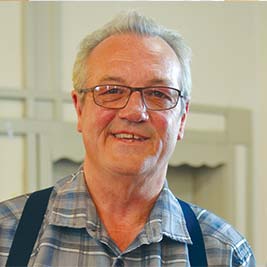
Should he be re-elected for the 4th time, Randy Hillier will mark 11 years at Queen's Park in October, and he thinks it has taken much of that time for him to overcome the perception that came with him when he first arrived in Toronto to take up his seat.
"People had an image of me, a narrative about me as a kind of rural radical, a show boater, but what I have always done to my best is represent my constituents, bringing their concerns to the PC party and to the government instead of the other way around."
The radical label came from Hillier's rise to prominence as a leader in the so-called 'rural revolution' as President of the Lanark and Ontario Landowners Associations. The landowners, wearing trademark red suspenders, came out in support of rural entrepreneurs, from small scale egg farmers dealing with provincial egg sizing regulations, to sawmill operators facing regulations over sawdust regulations, even supporting property owners in dispute with local townships. The landowners also organised some high profile tractor convoys to Parliament Hill and Queen's Park, interrupting urban traffic patterns as they delivered loads of manure to fertilise the ground around the iconic legislative centres.
He has since split with the Landowners organisation and has become entrenched at Queen's Park, where he is active both in the PC Party and the legislature. He has taken on party leaders within the PC party on a number of occasions, most recently reporting now former party leader Patrick Brown to the parliamentary ethics commissioner. He once ran for party leader. He finished fourth and threw his support to the eventual winner Tim Hudak. His relationship with Hudack deteriorated and Hudack ultimately removed him as PC critic for labour relations.
In the most recent Tory leadership race, just this past winter, Hillier supported Christine Elliott, who lost a close vote to Doug Ford.
But with ten days to go before the election, there is little space between what Hillier is saying and the stance being taken by Party leader Doug Ford.
"Doug Ford is unlike a lot of leaders I have known. He doesn't pretend to know everything. He is a very authentic, very sincere, very genuine person," Hillier said this week, when interviewed at the Sydenham Legion just before an all candidates meeting.
"He takes phone calls, he takes input, from his caucus members. I called him at 10:30 last Friday night and he picked up. It wasn't voice mail. I've never seen that in a party leader. Some people don't like someone who is blunt and forthright, but most people like that sort of individual," he added.
And when asked how Ford and the Conservatives will be able to finance their election promises while cutting taxes and committing to not laying off any government employees, Hillier is quick to respond. He talks about money that he says the current government has squandered over the years.
"They have spent billions, billions, with nothing to show for it. The waste from the Green Energy Act, gas plants that were never built, e-health, ORNG [air ambulance] and the list goes on. The people of this province have been ripped off for 15 years. Once you stop all that waste, you will find there is more money available for long term care beds and to eliminate hallway medicine in our hospitals."
He said that the level of dishonesty from the Liberal government has been well beyond anything he expected to find when he arrived at Queen's Park in 2007.
"All we were used to was Dalton McGuinty saying he would do one thing during the campaign and then doing something else, but the level of dishonesty, the willingness to create any public policy no matter how harmful it is in the long run just for a short term advantage, that I never thought I would see."
With a very close campaign setting up on a provincial level, Hillier said he is "confident" about his own re-election, but said this election has been different from the three others he has experienced, because "for the first time, it really is a two way race. The Liberal vote has collapsed. This is something new."
Ramsey Hart (NDP)
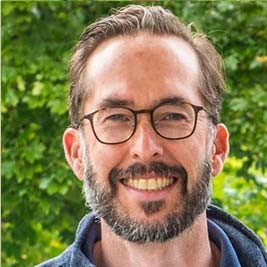
Ramsey Hart is pretty well known in Perth as the Executive Director of The Table, and for his volunteer commitments. When first interviewed about receiving the nomination from the NDP in Lanark Frontenac Kingston (LFK), he said that he saw running for the NDP, the perennial third party in the former ridings that make up LFK, as an opportunity to represent the values of the party and to promote the social justice causes that he is committed to in his professional life.
When interviewed this week, with the election 10 days away and the NDP party polling neck and neck with the PC's, Hart said that everything has changed, he is now running to win a seat.
"Everything changed when, as we were going door to door, we started seeing the level of support. We have shifted our perspective based on that, looking at it from the realistic perspective that we can take the riding, and it has become a priority for me to make sure that as many people as possible get a chance to meet me," he said.
There is no polling data that is specific to this riding, and Hart is reacting to what people have been telling him as he travels the riding, and to province-wide polling which may or may not translate in Lanark Frontenac Kingston. He recognises that in order to win the riding he needs to do more than convince voters on the left, Liberal and Green Party supporters, to vote for him. He needs Conservative Party supporters to vote for him as well.
"Lots of people are drifting away from their traditional voting habits," he said, "and are moving away from the Conservatives."
At the all candidates meeting in Sydenham, he addressed one of the issues that has dogged NDP campaigns, the perception that NDP governments run high deficits.
He said that the track record of provincial NDP governments as far as deficits go is better than Liberal or Conservative governments. They have run deficits less often, in percentage terms, and those deficits, on average, have been smaller.
"The NDP record for fiscal responsibility is better than that of the PC's or the Liberals," he said
The other thing that has happened during this campaign, and this is a matter of some amusement for Hart and people he has met during the campaign, is the fact that his past employment at Mining Watch Canada has come to the attention of PC leader Doug Ford. Between 2008 and 2014, Hart was the Canada Program Co-ordinator for Mining Watch Canada, a small organization funded by social justice groups in Canada to work on human rights, social justice and environmental issues as they relate to the activities of Canadian mining companies at home and around the world. Hart wrote numerous articles that were critical of mining projects in Canada.
Several times during the campaign, and again on Sunday Night, Doug Ford referred to Ramsey Hart as a star candidate who has "spent their entire career, in shutting down mines, in celebrating when companies close down forestry ..."
"A few people have mentioned this to me at the door, everyone finds it pretty funny. I don't think it is an issue here. And besides, Randy Hillier was on the same side as Mining Watch on some issues in Frontenac County,"
Hillier, and Mining Watch Canada, both supported the efforts of the Bedford Mining Alert and the Citizens Mining Action Group of Tay Valley over prospecting on privately held land in Southern Ontario, as well as aspects of the protest and occupation of uranium exploration in North Frontenac in 2008.
As the campaign enters its final phase, buoyed by the jump in the polls for the NDP and the fact that people he is meeting are responding to the NDP platform, Hart said that his campaign is "nominally shifting its focus away from informing people about the party platform to a "get out the vote strategy" and talking about the strengths of the party leader.
"It was really helpful to have our leader come out to Kingston last week, it provided a boost for all of us in Eastern Ontario," he said.
After the campaign, he is ready to return to his job at the Table in Perth, an innovative and dynamic food program. That is, unless something very unexpected happens on June 7.
Steve Gebhardt (Libertarian)
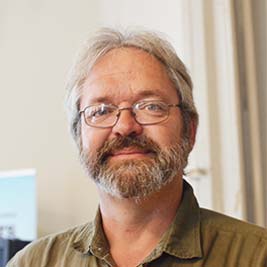
Steve Gebhardt has lived in Frontenac County for 11 years, on an off-grid farm south of Arden with his wife and two young children. He works as a pilot gathering geophysical data for a couple of months at a time, and spends the rest of the time with his family on their property, gardening and making improvements.
"I love living here. I love the privacy it brings, the freedom it brings," he said.
But somehow, he has been drawn into politics.
"I lived in Alberta and maybe that's where I get my Libertarian bent," he said, "but I was a member of the Conservative Party until the passage of Bill C-16.
Bill C-16 is an Act to amend the Human Rights Act, extending protections under the Act.
Under C-16, "prohibited grounds of discrimination are race, national or ethnic origin, colour, religion, age, sex, sexual orientation, gender identity or expression, marital status, family status, disability and conviction for an offence for which a pardon has been granted or in respect of which a record suspension has been ordered."
For Gebhardt, the way the act affixes rights to people based on labels, rather than their very humanity, is an offence.
After leaving the Conservative Party he began to look at the Ontario Libertarian Party, which does most of its organising online, and he is now the Libertarian candidate in Lanark Frontenac Kingston.
"I oppose any kind of identity politics, which in provincial terms translates into interest group politics. As individuals, we all deserve all of the same rights, that's a tenet of libertarianism," he said.
The Libertarian party has nominated candidates in 116 of the 124 ridings in this election, its most ever, and while some of them are what are sometimes called 'paper' candidates, who have little or no connection to the riding where they are running and may not be campaigning at all, most of them, like Gebhardt, live in the riding and are conducting a campaign.
The party platform is focused on its opposition to taxation and big government, what Gebhardt called "the nanny state" at the all candidates meeting in Sydenham earlier this week.
One of the taxes that Gebhardt opposes most vigorously is property tax, which he likens to "medieval serfdom".
"A house is the only thing you can tax yearly and if you don't pay they can take it away from you," he said.
In general terms as far as all taxes are concerned he said that "instead of governments taking people's money and then handing it back to use as presents or goodies, we should let people keep their money in the first place. It's their money."
He also said that the reason people have been leaving rural Ontario behind and moving to cities is that taxes and regulations have made it hard or impossible to live in the countryside.
"If we can allow people to live away from the city, they will be able to live on less money. But we need to let people do what they want to do on their own property, and not kill them with taxes. With more people living in the country, there will be a stronger rural economy, and less need for government help," he said.
Amanda Pulker-Mok (Liberal)
More Stories
- Province clarifies stance - Says Private Well Water Testing Will Continue
- Frontenac County Stays Internal for CAO - Appoints Kevin Farrell
- Addington Highlands Tax Bill Going Up 6.93%
- Perth Road United Church Donation to The Grace Centre
- 21 Years Of Dump Life Left At South Frontenac Waste Site
- Eclipse 2024 – Once In A Lifetime
- National Tourism Week
- NeLL Spring Open House and Anniversary Concert
- 25 years at Bishop Lake Outdoor Centre
- Grounds Contracts Down, Custodial Contracts Up In Central Frontenac
